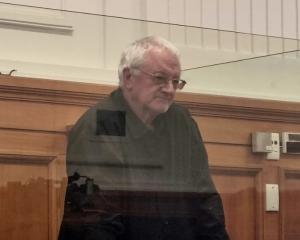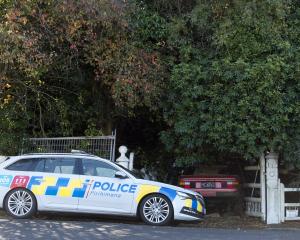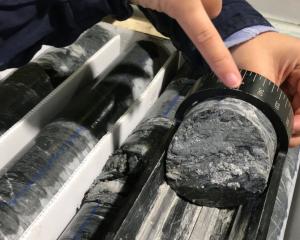Covid-19 reached some of the smaller centres in the southern region yesterday, as New Zealand made final preparations to shut down and defend itself against the pandemic disease.
Prime Minister Jacinda Ardern yesterday formally placed the country in a national state of emergency for just the second time in our history; the only other time was after the Canterbury earthquake.
An official pandemic notice was also issued and, as if to emphasise the threat Covid-19 poses to all New Zealanders, soon after, people were confirmed with the disease in Roxburgh, Cromwell and Alexandra.
- Five new confirmed Covid-19 cases in Canterbury
- Coronavirus: Community rallies behind high school
- Live: 50 new Covid-19 cases, 5 cases in schoo
It was only a matter of time, Central Otago Mayor Tim Cadogan said.
‘‘This makes it very real. If you needed to make it real, it is this.’’
The three patients were not officially tallied by the Southern District Health Board.
It did say that additional cases in Otago were confirmed but details were unavailable.
The SDHB official southern total of cases is now 19 — 18 confirmed and one probable.
The new cases were two Dunedin women in their 20s, a Queenstown woman in her 30s, and a Wanaka man in his 20s.
‘‘All cases have mild illness,’’ a spokeswoman said.
With 19 official cases and details of more confirmed cases to come, the southern region is looming as a Covid-19 hotspot.
About 10% of New Zealand’s 205 cases are in the region.
Overall case numbers surged again yesterday, after another 50 confirmed and probable cases around New Zealand were announced by the Ministry of Health.
Among those cases is chief human rights commissioner Paul Hunt, who tested positive for coronavirus after returning from overseas.
The New Zealand Film Commission also confirmed its chief executive Annabelle Sheehan, of Wellington, has tested positive.
New Zealand moved to alert Level 4 at 11.59pm yesterday, and embraced the most stringent rules governing personal freedoms ever seen in this country.
Businesses and schools have been shut down, and people asked to remain at home for at least four weeks.
Essential service staff are able to get to and from work and people can go to the supermarket or service station for crucial food and energy supplies, but Prime Minister Jacinda Ardern yesterday implored people to otherwise stay in their homes.
‘‘Unlike so many other gravely inundated countries, we have a window of opportunity to stay home, break the chain of transmission, and save lives. It’s that simple,’’ she said.
‘‘You may not be at work, but that doesn’t mean you don’t have a job.
‘‘Your job is to save lives, and you can do that by staying home, and breaking the chain.’’
Parliament met under urgency yesterday to pass a wide range of emergency measures.
Mechanisms were put in place so central and local government could function legally, and financial Bills approved to fund a wide range of initiatives intended to preserve jobs and bolster the economy.
A potential $52billion spend was the price New Zealand had to pay to preserve as much of the country as possible against the challenge posed by Covid-19, Finance Minister Grant Robertson said.
‘‘It’s the price of making sure our public health system can operate and support New Zealanders.
‘‘It’s the price of people keeping their jobs and keeping their homes.
‘‘It’s the price of cushioning the blow to businesses and of keeping them afloat, and it’s the price of making sure that the core of an economy exists that we can build on to recover in the way that New Zealanders want us to do.’’
Opposition leader Simon Bridges, along with leaders of all other political parties, backed the Government measures to fight Covid-19.
The SDHB issued further contact-tracing alerts yesterday for locations across the region.
From March 14-24, people in Central Dunedin, South Dunedin, North Dunedin, Mornington, Mosgiel, Green Island, Queenstown, Cromwell and Alexandra may have come into contact with someone with Covid-19, a spokeswoman said.
‘‘Those who believe they may have come into contact with the case are advised to monitor their health and call Healthline on 0800 358-5453 if they develop symptoms such as a cough, fever, sore throat or difficulty breathing.’’
The board specifically identified a bus tour from March 12-18 which visited Christchurch, Omarama, Dunedin, Te Anau, Milford Sound, Queenstown and Fox Glacier as being a specific concern.
It also highlighted Outram rugby field, South Dunedin and Central Dunedin on March 14, and Air New Zealand Flight NZ677 from Auckland to Dunedin on March 23 as sources of possible concern.
Nationally, 1421 tests were processed around the country on Tuesday, bringing the total number of tests processed to almost 10,000.
Public health officials were still working to trace people and close contacts of participants at last week’s World Hereford Conference in Queenstown; that event and Auckland’s Marist College were both vectors for a cluster of cases, director-general of health Ashley Bloomfield said.
‘‘We will see a rise in cases for the next 10 days, from people infected before today,’’ Dr Bloomfield said.
‘‘The numbers will continue to increase before they turn around; that turnaround will happen if we all do what is asked of us.’’













